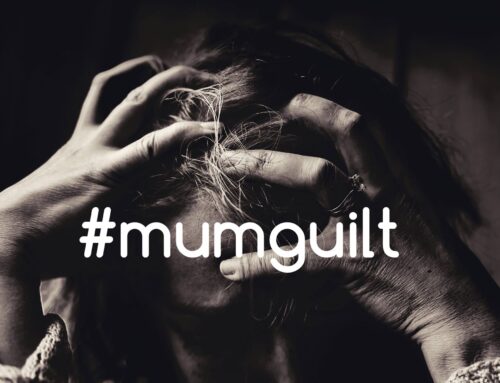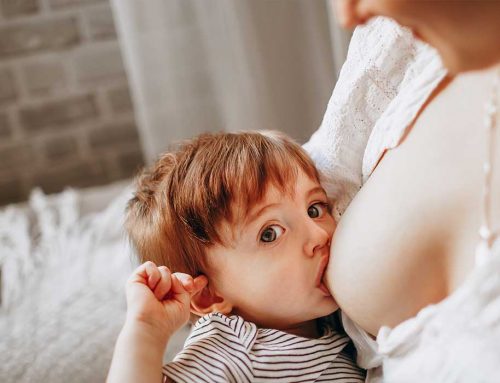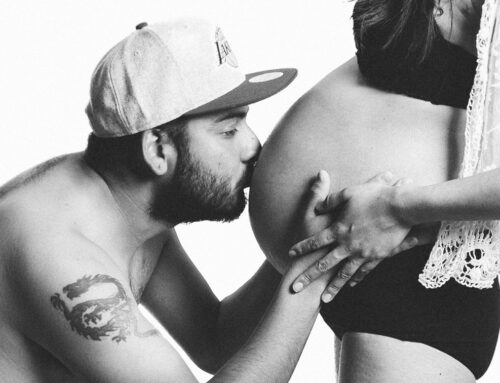The word “infertility” often sends shivers down people’s spine. And, sadly, people quickly get awkward when this topic is brought up.
In reality, infertility is something that many couples are dealing with – and way too often they suffer in silence. Shockingly, 1 in 6 couples in Australia struggle to get pregnant and keep the pregnancy! This means, there’s a pretty good chance that someone in your family or friends have this issue. And yet, despite how common infertility is, it’s not something that many people discuss or know much about. Sometimes it can be rather puzzling and difficult to understand for “fertile people” why it’s so difficult for someone else. Maybe that’s why people with infertility don’t feel like discussing it – they simply want to avoid judgement from people who think getting pregnant is easy for everyone.
But it’s not.
Causes of infertility are many and varied and involve issues with male, female or a combination of factors. In 40% of couples the cause of infertility is attributed to a sperm factor, in another 40% the cause is found within the female reproductive system, and a third will have a combination of male and female factors.
Let’s try making the word INFERTILITY more normal.
Let’s make people with infertility problems feel more normal and less judged.
Let’s talk about it.
Let’s get into it.
AMY’S FERTILITY JOURNEY
My friend, Amy, recently had a beautiful daughter. Over the past eight months she has been enjoying her little rainbow baby while being on maternity leave. It all sounds very idyllic. But behind the scenes, it took her and her husband six years for her to finally arrive.
This is her heart-braking Fertility Journey:
WHEN YOU ARE SCARED OF CELEBRATING FALLING PREGNANT – the heartache after miscarriage.
As many young girls do, I always took for granted that sometime in the future I would be a Mum. It was a no brainer. Later as a young adult the idea of being pregnant, growing a child inside of my belly, was something I looked forward to fondly. I wouldn’t say I was a typical ‘maternal’ person as I was very career driven at the same time, but I definitely wanted to be pregnant, to be a Mum, and to have a family in the future. I also hoped to be a ‘young’ Mum if possible.
My husband and I were married in 2012, when I was 26, and began trying to start a family the same year. Looking back I am so grateful that we started trying at what seems almost ‘early’ these days. It was a long journey before we finally brought our beautiful baby girl Taya into the world in February of this year (2018). Yes, it took us 6 years…. I was 32 when she was born.
Getting pregnant was not the issue for us. It was only a few months after we started trying that we experienced that joyful excitement that a positive pregnancy test can bring. However, a few weeks later I had an early miscarriage and our excitement was put on hold. We were disappointed of course, but I knew that miscarriages were common and to us it was a good sign that we fell pregnant reasonably quickly. We were sure it would happen again soon. And it did…we were cautious but excited again when I got that second positive pregnancy test…..but I miscarried again. Fast forward several years and positive pregnancy tests were no longer exciting, but the cause of mounting anxiety. Over a 5-year period I experienced six miscarriages.
The physical, financial and emotional toll this had on me, my husband and our marriage is difficult to put into words. Every time I became pregnant, instead of celebrating, we knew we had to NOT get excited because most likely I would lose it again. I was in and out of doctors, specialists, and radiologists’ offices continuously as we tried to monitor each pregnancy and also to work out why we kept losing our babies. Eventually we discovered that I carried a genetic abnormality which affected my eggs making it very unlikely that we would have a successful pregnancy.
One of the more difficult aspects of dealing with recurrent miscarriage was that for some strange reason it is something that society doesn’t seem to want to talk about. Personally I think this stems from a medieval mentality. Back when there was close to no understanding of conception and pregnancy it was assumed that losing a pregnancy was the fault of the woman. And so follows a need for secrecy of such a matter. The number of times it would have helped for my work colleagues to understand why I was holding back tears all day, or why I had to run off for yet another appointment, or why I just didn’t have the same level of motivation as usual, are countless. I am a reasonably open person in general and I had a great group of family and friends around me that knew about our infertility woes. But even so, someone knowing what you are going through is very different to someone understanding it.
Now that we have our baby girl, I can look back on our journey with a different perspective. Yes, it was tough, but some positives also came out from it. My husband and I learned a lot about ourselves and our relationship, and we have a much stronger bond now than we did before. I also think the whole experience has helped to increase my mental resilience, which will no doubt come in handy later in life again.
THEIR SOLUTIOIN
After finding out about the cause of my infertility and the highly unlikely possibility that my husband and I would be able to have a successful pregnancy, we had to look at our options. One of these options was of course to decide to not have children and let our lives take another direction. And for a while this was the path that we thought me might take. However, over time I realised just how hard this would be for us. We saw many of our friends start their families and I envisioned these friendships inevitably drifting apart simply because our lives would follow such different paths. I also knew in my heart that not having children would always sadden me, and a life of longing and regret was not one that I wanted to live.
We looked into adoption next, but you wouldn’t believe how difficult adoption is these days. It’s expensive yes, but this wouldn’t have put us off as much as how long the process takes with absolutely no guarantee that a child would be placed with you in the long run. 10 years is not uncommon. We had already been through five years of heartbreak, I knew I wasn’t strong enough to deal with another 10!
So that really left us with one option, egg donation and IVF. There are communities out there, which are designed to help connect amazing women willing to altruistically donate their eggs to longing recipients. After only a month of looking, a beautiful lady contacted us and after getting to know one another ended up offering to donate her eggs. She is now a good friend and we keep in contact regularly.

WHY SHARING HER STORY IS SO IMPORTANT
Sharing our story like this is a little bit scary. I think it is so important for people to openly talking about subjects such as infertility, IVF and egg donation, so that they are normalised in our society. Let’s stop the negativity around these subjects and start to empathise with the struggles that so many people are going through these days.
WHERE CAN COUPLES FIND SUPPORT?
Online support groups were my life saver during this whole journey. There is pretty much a group for everything.
When I found out about my genetic condition (called a Balanced Chromosomal Translocation), I joined an international Facebook group full of people with the same condition. You will find that most infertility conditions would have similar groups. Being able to ask questions, vent, and hear success stories from people going through the same thing was very important to my grieving process.I also joined a Facebook group called Recurrent Miscarriage Support and through that connected to several ladies that lived in the same state as me. We met up face to face and formed lovely friendships based on a true understanding of what we were all going through. Having the support of these ladies over the years has been amazing. I would highly recommend anyone that is struggling emotionally with infertility to join a relevant support group because talking about it helps so so much.
I’m so happy that Amy bravely decided to share her story. Hopefully this story can help people with the same issues in the right direction. People need to know that they are not alone.
I think there are several conclusions to this topic;
Firstly, we need to increase knowledge about infertility. We need to open up and share stories like this.
Secondly, people who don’t have fertility issues need to stop judging people who suffer from infertility. We should listen more – instead of giving advice on how to get pregnant.
Until next time, stay calm and spread the awareness about infertility.
xx Charlie
























